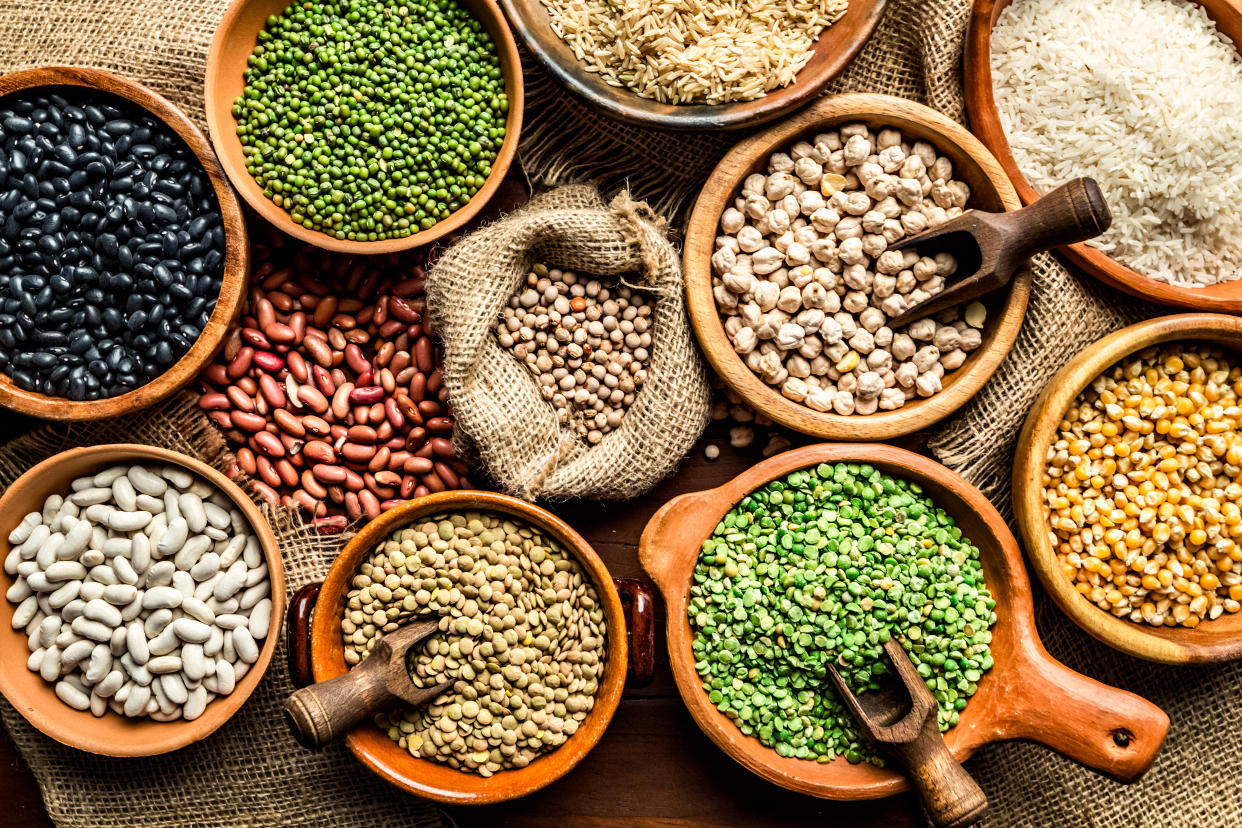Eating nuts and beans instead of meat 'could save 16 years of fossil fuel emissions'

If humans switched from consuming meat and dairy to eating plant protein foods such as nuts it could “set back the clock” on climate change, researchers have said.
Such a move could claw back up to 16 years of fossil fuel emissions, effectively doubling Earth’s carbon budget, scientists at New York University said.
The “gain” would come from regaining farmland used for meat and restoring vegetation, they said.
The findings echo those of a 2019 United Nations report into the impact of eating meat.
When warming reaches 1.5 degrees Celsius above pre-industrial levels, it’s expected to cause droughts and sea level rises.
Read more: Nature crisis - new global extinction target agreed
Scientists describe how much fossil fuel we can burn before hitting that limit as the global “carbon budget”.
Animal-sourced food requires 83% of Earth’s agricultural land, but plant protein requires far less land to produce.
If food production were shifted towards nuts and beans, the land used to grow meat could instead be used to support ecosystems that absorb carbon dioxide, according to research published in Nature Sustainability.
Vegetation regrowth could remove between nine and 16 years of global fossil fuel carbon dioxide emissions, if demand for meat was to drastically plummet in the coming decades.
Read more: Melting snow in Himalayas drives growth of green sea slime visible from space
Matthew Hayek, of New York University, said: “The greatest potential for forest regrowth, and the climate benefits it entails, exists in high and upper-middle income countries, places where scaling back on land-hungry meat and dairy would have relatively minor impacts on food security.
“We can think of shifting our eating habits toward land-friendly diets as a supplement to shifting energy, rather than a substitute.
“Restoring native forests could buy some much-needed time for countries to transition their energy grids to renewable, fossil-free infrastructure.”
In their report, the authors emphasised that their findings are designed to assist locally tailored strategies for mitigating climate change.
Colorado State University’s Nathan Mueller said: “Land use is all about trade-offs. While the potential for restoring ecosystems is substantial, extensive animal agriculture is culturally and economically important in many regions around the world.
“Our results revealed over seven million square kilometres where forests would be wet enough to regrow and thrive naturally, collectively an area the size of Russia.”
Read more: Why economists worry that reversing climate change is hopeless
People must switch from meat-heavy Western diets to vegetarian or vegan diets to avert climate change, a UN-backed report warned in 2019.
By 2050, the world will need to produce 56% more food than in 2010, to feed a predicted 9.8 billion people.
If the level of meat and dairy consumption rises in line with current trends, 2.3 million square miles of forest will need to be converted for agriculture.
Our system of producing food already accounts for between 25-30% of greenhouse gases, the Creating a Sustainable Food Future report warned
If the world requires millions of extra square miles for food production, it will clash with planned schemes to limit global warming, including so-called 'bioenergy with carbon capture and storage', or BECCS schemes.
Limiting global warming to 1.5 degrees Celsius would require 2.9 square million miles devoted to BECCS schemes, the researchers warned.



